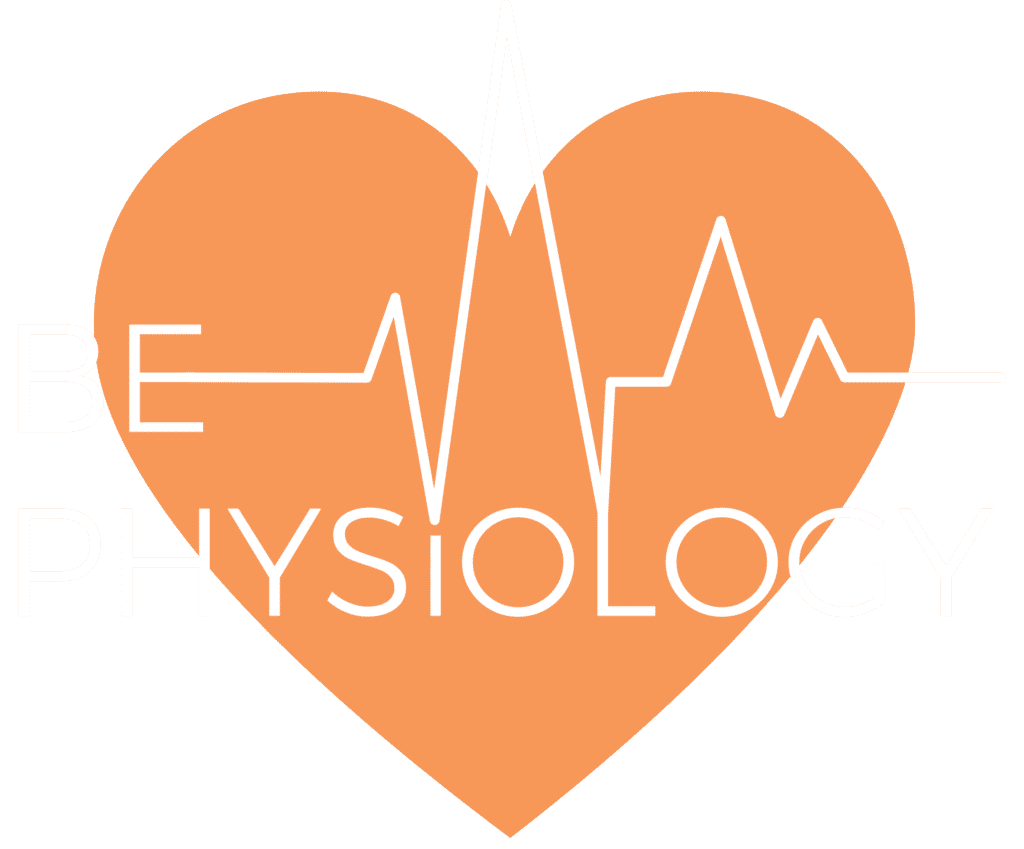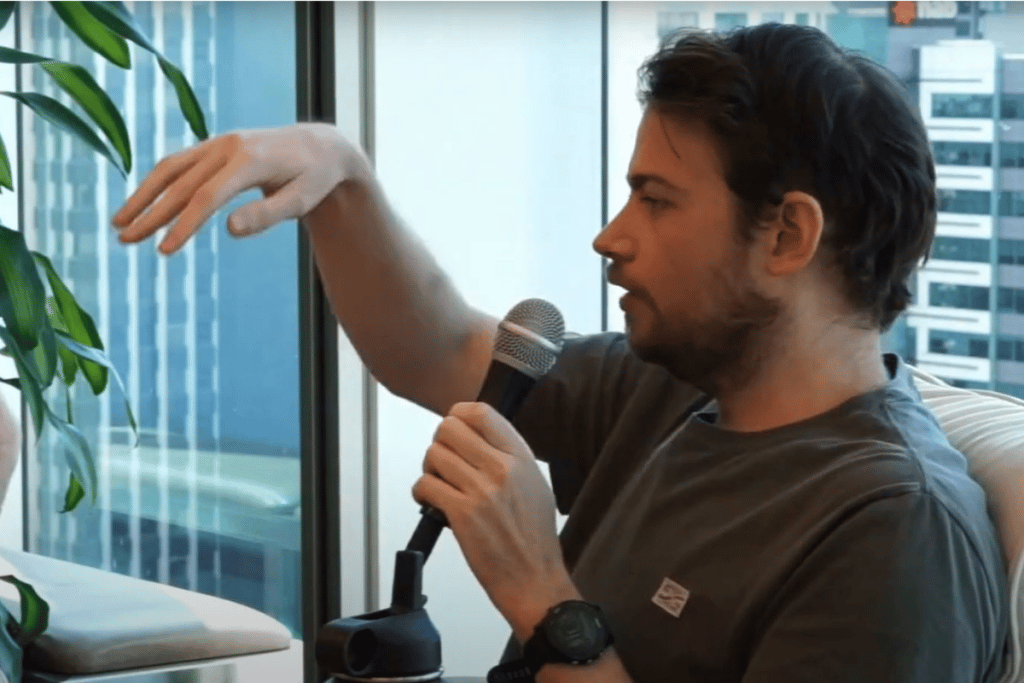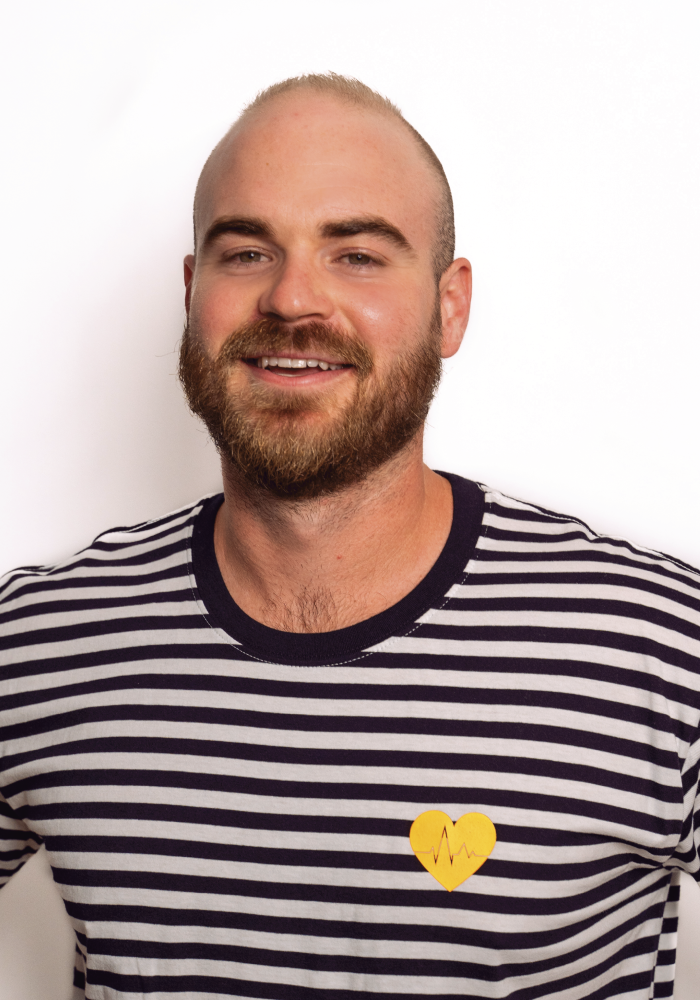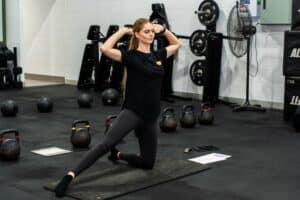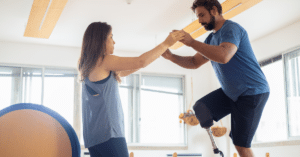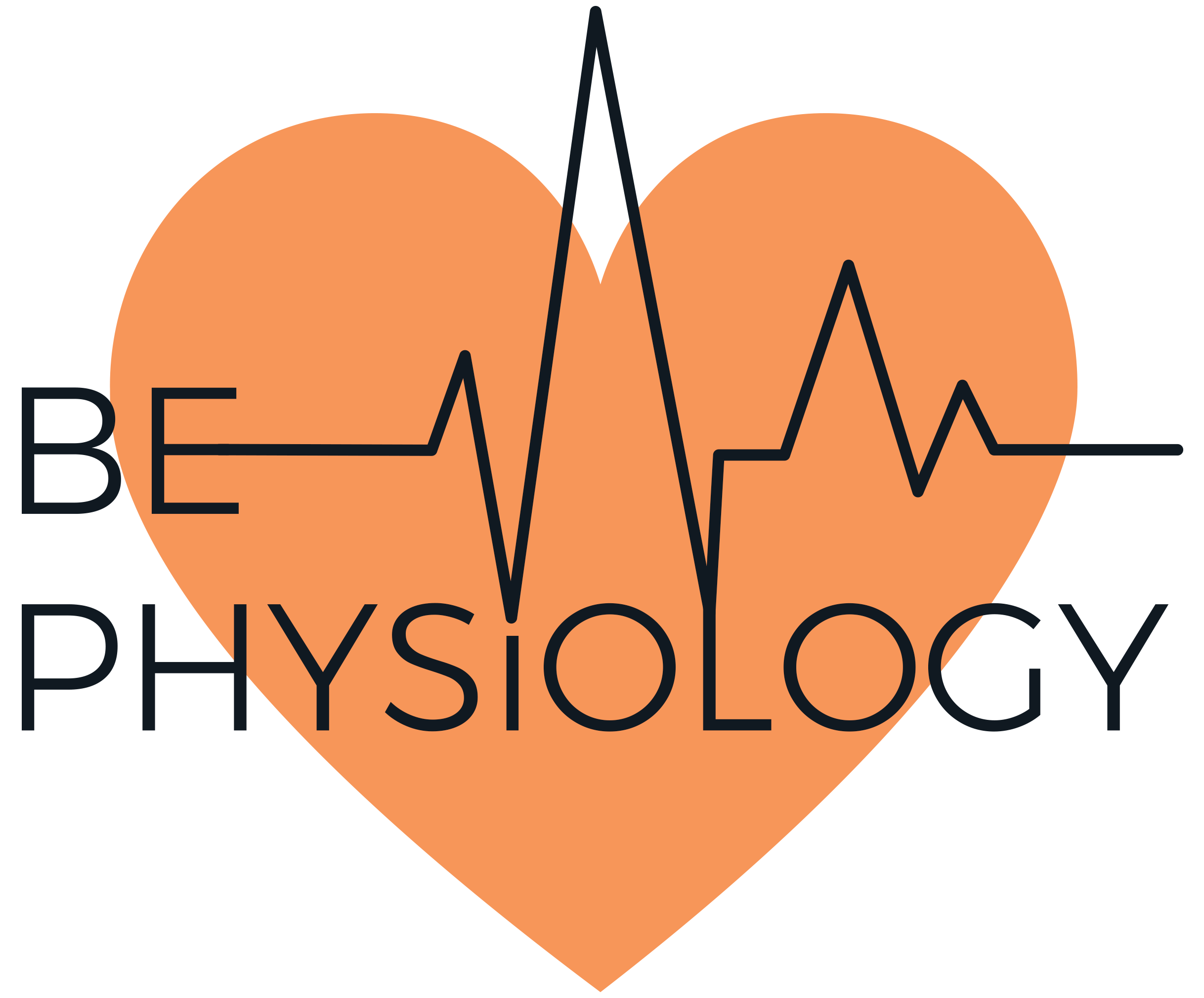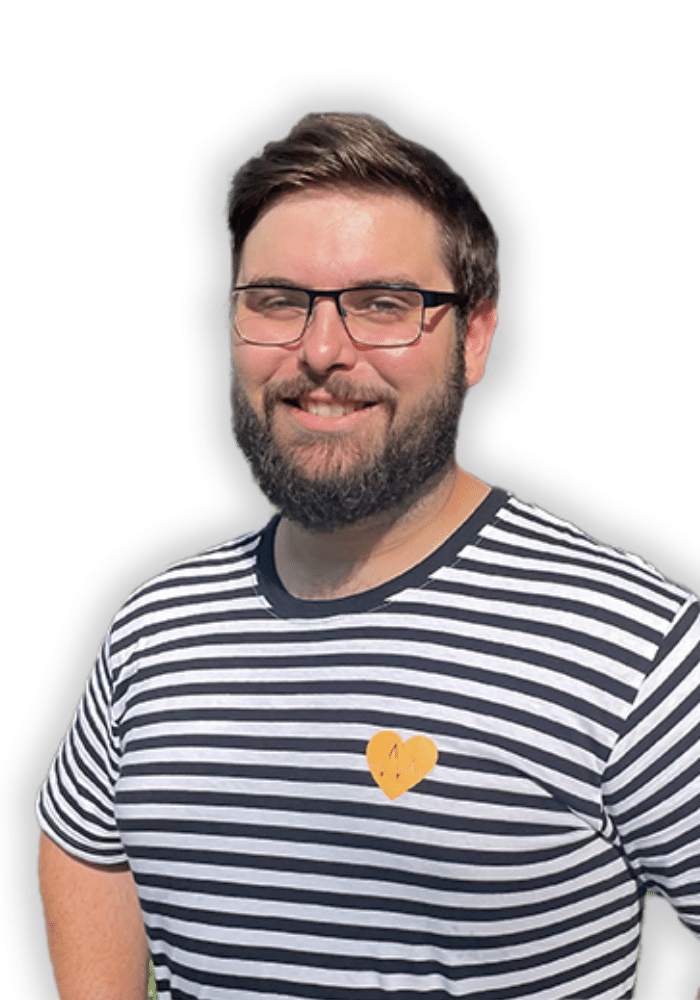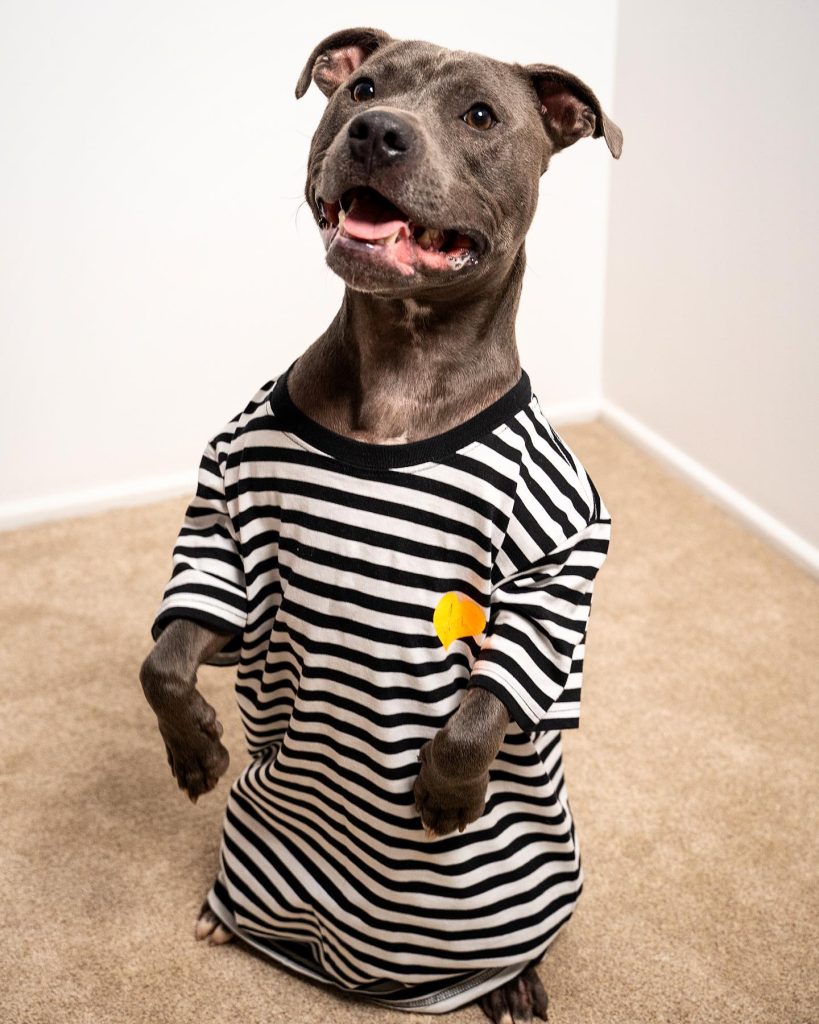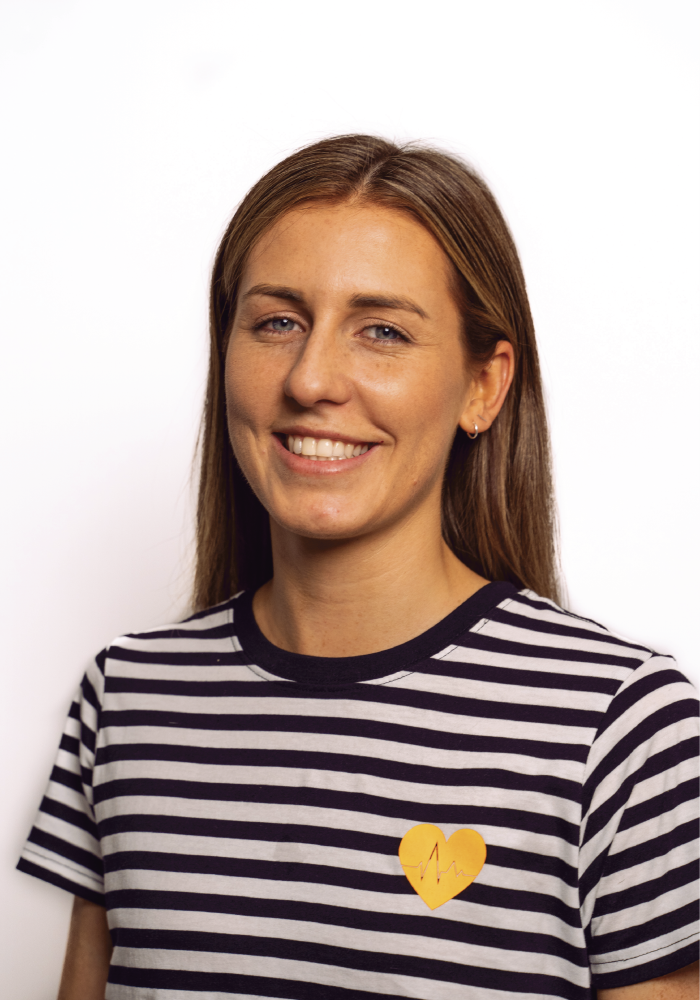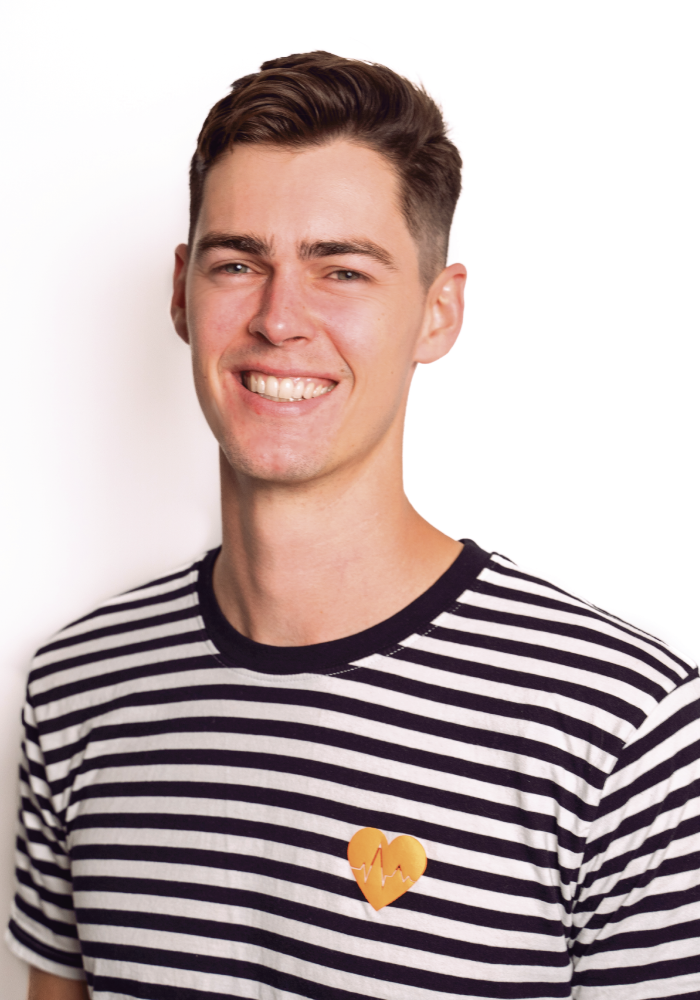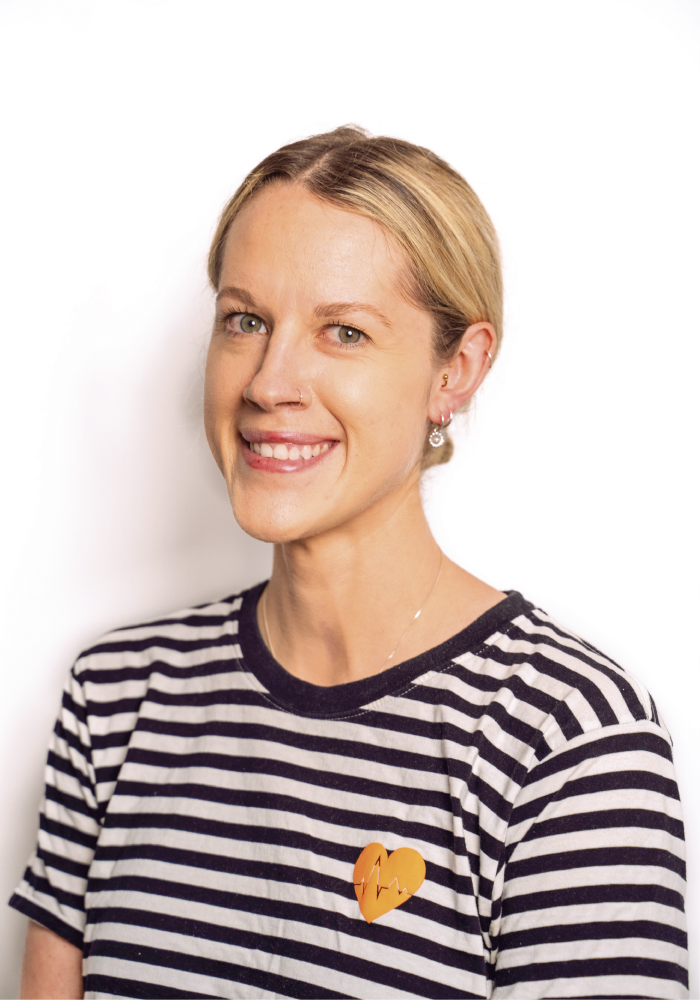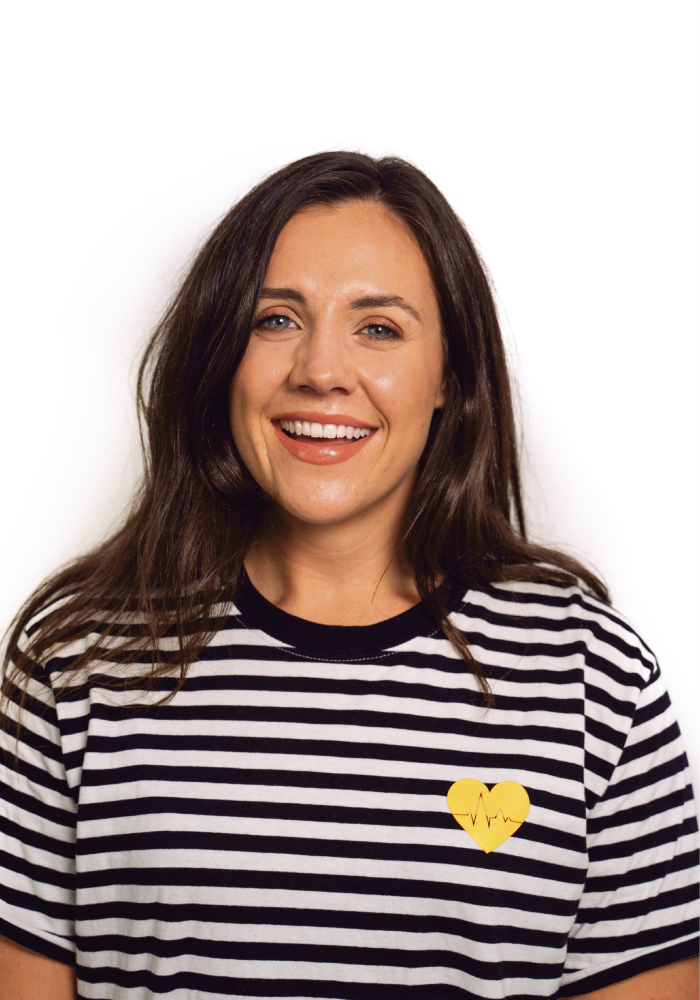We’re all familiar with the fear of injuring ourselves overseas. What is it really like ending up in a foreign hospital?
In this episode of Be Stories, we hear about the injury Callan suffered while on holiday in South America.
After spending a year travelling, watching live volcanos, and exploring the Amazon, Callan decided to take a break and went to work with a friend in Chile.
One day, while en route to a job site, Callan was involved in a major car accident that left him unable to move.
In a story that reveals the alarming reality of overseas injuries, Callan shares how dangerously close he was to suffer a spinal cord injury. And that’s before the earthquake hit…
[activecampaign form=22 css=1]
Transcript
Hello, and welcome to Be Stories. Series two of the unaUNAWARE podcast by Be Physiology where we sit down with some of our favorite people, clients, and role models, people that have really opened up our awareness by sharing their stories, and their journeys. We are two EPs who work with people, living with disability every day, helping them to achieve happier and healthier.
We are coming to these discussions as professionals and as friends wanting to learn more about the people that we work with. So sit back and enjoy this episode of be stories. As we talk to Callen the partner of our colleague, Kristen, as he relives a crazy story abroad. Well, Callan, thank you so much for joining us today.
We know you have an amazing story and we’ve been waiting for this, opportunity to sit down with you and actually hear it, for ourselves. But first and foremost, our first question is, what would be the name of your autobiography? Kristen told me about this question. Your lovely therapy assistant, my girlfriend, a little while ago.
I had a bit of thought about it. I had a, I had a bit of thought about it over the intervening weeks and I, I mean, it seems presumptuous to name a, to come up with a title of an autobiography, but I thought something like little choices, because for me, you know, little choices were the pebble that set off the landslide, so to speak.
So, right. Yeah. I’d probably say little choices would. Wow. Okay. I’m looking forward to, yeah, I was gonna say, I’m really interested to hear how that plays out in the context of everything that we’re about to speak about. Sure. Make sure I’ll try and make sure I, I pick up on all the threads that kind of led to it.
We’ll bring it. I mean, as much as we can, we’ll bring it back in as well. Sure. Little choices. Very cool. All right. So tell us a little bit about your yourself, and you know, the time leading up to this, incident. Sure. So. Now I’m, studying at university, I’m studying environmental management. I’m actually my last two weeks of my degree.
Oh yeah. So I’m basically writing a thesis when I’m not doing podcasts on the . Thanks for coming. Um, so yeah, I’m, I’m working at the moment at the, the state government doing some water markets type stuff. Mm-hmm , which is good. And is that where they sell water? Yeah, more or less. Uh it’s I don’t think we wanna get into water markets too deeply.
basically buy and sell water and, you know, trade it for agriculture and stuff like that. Fixing that stuff. Right. Okay. Not particularly. Exciting and probably off-topic for this, but, so anything’s on, anything’s on topic. We’ll get you on our water podcast as well. Yeah. I look forward to the water edition of the podcast.
Try this funnily enough, I can so, yeah, in the. The kind of leader. Kristen and I had been traveling central and South America for quite a while. So Chris and I met, only a couple months or maybe eight or nine months before we left for South America. Um, we actually only started dating a couple months and I said, I’m, I’m flying to Mexico and I’m going for however long, Kristen said, oh yep.
I might come along. And I said, oh, that sounds great. So we spent. Close to it. Wasn’t a boys trip originally or anything like that? No, no. It was a solo trip that was barely improved by Chris. Oh, you ruined a solo trip. I was meant to find myself out there and I said, I found myself in a loving relationship.
It was just so disappointing. The first pebble. Yeah, no.
We spent nearly a year by bus boat, train bicycle, basically any mode of transport you can imagine making our way from Mexico. Through central America, Guatemala, down to South America, you know, and along the way we were doing the most incredible experiences, imaginable spent a lot of time hiking in the Andes.
We watched live volcanoes, erupt. We, wow. You know, saw green lakes and blue lakes and all those sorts of things. So we’re having a, a pretty phenomenal time, I would say, yeah, right. So. Obviously, everything was going off without a hitch. Yeah. That’s what you’re trying to get to, you know, and, and actually south, South America, I would love to go, I’m just generally terrified of South America.
I don’t know whether it’s, you know, but if you guys can steer me into, oh, I. Even after the things that I’m about to tell you, I would recommend it so highly. It’s just a wonderful place with beautiful people, beautiful culture and landscapes, the likes of which you’ve never seen before, you know, it’s astonishingly.
Beautiful. All right. Right. So at, at this time you’ve been in South America for how long? so I would say it’s probably about eight or nine months. maybe even longer, maybe 10 or 11 months that I had been there. And nine months that Kristen had been there. So she came over and joined me, a bit after, but the first pebble that started the landslide would probably have been Kristen leaving.
So, as sometimes happen, when you’re on 10 or 11 months, holidays, money starts to run short and Kristen, decided that she was gonna. go back to Australia, via visiting her sister in Europe. And I was going to, continue traveling because basically for me, the whole, the holy grail of the trip had been to get to Patagonia and do some hiking in Patagonia.
And that had been something that I had been looking forward to for years and years and years. so Kristen, we were in Bolivia at the time and Kristen decided to leave, Which was awful, but, understandable. And so I being the kind of, stubborn young man, the invincible young man thought I’ll carry on without a, you know, oh, it’ll be alright.
It’ll be hard, but we’ll be fine. And, I mean, the first it’s funny, there was probably a sequence of things that happened that were probably little warning signs that maybe you. Just call the trip Callen the first one was that, just before Kristen left, I got bitten on my ankle by a Bolivia tick and from, we were in the Amazon and I, I had a, I got a tick on my ankle somehow.
And then we went straight from the Amazon to the salt flats, which are about minus 15 degrees. And I didn’t take my socks off for about four days. Oh. So I didn’t realize that I had some sort of, I would say paralysis tick on my ankle because by the time Kristen had left, I realized that my right. I was walking down the street.
And I remember, I remember hearing the slap of my foot and I was going, well, why is it doing that? That’s strange. And, I Googled, what do I do? What slap? Yeah. foot slap, tick input, slap living Dick. I was like, okay. And for whatever reason, I decided, oh, I’ll take doxycycline because that’s what you do to get rid of Lyme disease.
And I was like, that’ll be fine you know, and the next thing was that I had just been out and bought a bunch of camping gear, cuz I was gonna, you know, do all the hiking in Patagonia, by myself, on established trails and everything. But I wanted to have all my own tents and cooking gear and, you know, minus 15 degrees, sleeping bag and stuff like that.
And to do a trial run, I was in Bolivia, in the capital in LaPaz and I went to do something called the Tiki Trek and. Probably just an overnight trip with you can probably do it in one day. Even if the bus drops you off at the right spot and you go down the right road, which I did not. And it did. So I took a wrong turn at the very beginning of the Trek and it took me half a day to figure it out.
And by the time I got back onto the road and started ascending. So it was a, you got hike over a pass, a snowstorm, a blizzard had set in, of course it did. And I was carrying, you know, all of my gear and extra gear as well because the, I didn’t leave anything at the host, which was foolish. So I probably looked like a Sherpa trying to sum me on Everest, to be honest.
Luckily, there was a hut at the overpass over the other side. But when I was getting there, I actually, I think I just I blew out both my knees. So, I mean, I would say I possibly did a meniscus in my right knee cuz I couldn’t bend it, but you guys can probably tell me better for about a month after not this podcast.
I basically, I made both my knees very sore and yeah. You know, for weeks I was going down, stairs with straight legs, more or less. Oh. And cause of this, I thought, you know, what I need is the tick still? I was gonna say, yeah, where’s the foot at this stage.
So my ankle was still slapping and I wasn’t really very agile. And I actually remember my right leg, which had the tick and the the knee where I actually probably blew out was just, I wasn’t striking the ground very well. Right. And I remember the twist and a crack in my knee, and that was just so the whole leg was kind of a bit out of action.
Mm. All of which contributed to my saying, you know what I need, I need a holiday, and on my 11-month holiday. I need a holiday it’s time for me to really put my feet. So I thought, oh, what do I do? I went online. And as you probably know, when you are traveling, there are lots of people who want your free labor.
I can’t remember what tour I went on, but it was basically this guy who ran a hostel in the, mid coast of Chile. And I met them an messaged him saying, do you want someone to come and help you run your host? And, you know, he was building a house at the time and I thought, He said yes.
You know, and, away I went. So I thought that was kind next exit. So I made my way down through chili through the Akar to go. So with this guy and he was probably about, four or five hours, south of Santiago, the capital. Okay. And yeah. And that’s, and so this is the scene where the actual accident eventually happened.
Right? So blown out knees. Tick. You’re still not organized if I can use that word and you’re on your way to what will become probably the biggest thing. Yeah. Yeah. That’s right. And so those are probably the two in the wonderful landscape of South America which we recommend at all times. So did you find the tick.
Like, at any point, or did you find it in your blood later? I found it, no, I found it right. Um, when we got to a time we’re on this, we’re in the salt flats before Kristen had left. And, I remember it was hot. It was finally hot. It had been minus 15. It was the coldest I’d ever been. Jesus. And then during the day we, we kinda left the salt flats, window sweat, and it was hot.
And I took my shoes off cuz I had three layers of socks on. Yeah. And I. it was so fat, it had dropped off and people don’t want the details of tick bites, but, and I thought it’s well, it’s done. It’s fine. It’s you know, but it’s also probably come from the Amazon. So it’s not loving the minus 15 degrees either, so, right.
Yeah. Okay. Um, and then, then, you know, maybe a few days before I actually noticed the ankle. Um, thing. I, I probably, you know, I was wearing hiking boots all the time, so maybe I just didn’t really pay attention. I was walking down the road in thongs for in LaPaz. And that was when I noticed the, actual slapping.
Yeah. That, to be honest, That receded from my mind once I had the bad knees, because I couldn’t straight my, I couldn’t bend my legs anymore. So the hierarchy oh yeah, exactly. The hierarchy of problems changed. Cool. Okay. So you head down to chili and you’re now working as in the hostile or you’re working in the host or your work comes, I wouldn’t say a hostile, it was kind of like, it was, it was a host, but people weren’t really, it was more like an Airbnb that could be a host.
So there were times there when, you know, someone would come and hire at the Airbnb and we’d have to clean the place and leave and go camping for the weekend or something like that. So I was there for a couple weeks before the actual accident happened. We were also this guy who I stayed with was amazing.
He’s a friend still to this day. Oh, wow. He’s a French guy. Who’d, you know, basically ridden him a motorbike around the world and washed up in chili, built this, built the house that he was in. It was overlooking the ocean with these beautiful Pines and it was a wooden home. And you had these two amazing, MIMO dogs, Pasha and Palomino.
It was really fun. I was like, were you gonna say wives for a second? I was like, was that a Bolivia thing or yeah, no, it is. It was a very free, no, so yeah, it was a lovely guy and I was having a great time. It’s amazing when you meet people like that overseas. Yeah. Yeah, for sure. He was that’s right. And South America.
You know, it’s, there’s obviously the gringo trail, but there’s still some really interesting and unique places to visit, yeah. Heading along there. So let’s move into the nuts and bolts. Mm. What happens next? So I was helping, know who was, the guy I was staying with, build a house more or less.
So we, a friend of his cuz he’d built his own house. His friend said, could you build me a house, another one on a hill overlooking the. Magic spot. And, you know, I I’d worked on job sites before when I was going through uni the first time. And I said, you know, I know which end of a hammer hits the nail so I can, I can help out.
Cause that was basically all we needed, you know, I could use a drop saw and whacking things. Yeah. You know? And so we’re working on this job site and the, I know had a couple of other people like myself come to stay. And one of those guys, so to get from Arno’s place to this job site was only two or three kilometers.
And. Probably, very common, not the done thing in Australia, but sometimes if there’s too many people in the, the front of the Yute, you get in the, the tray of the car. Um, and I, on this day, I, you know, the front of the Yute was full. And so I hopped in the tray of the car as we were going to leave. It was about five ish in the afternoon.
And there was a, a dirt road kind of on almost a shoulder. So the, on the both sides, it dropped off into a drain. and I guess when you get into a car with someone who’s driving, you tend to make the assumption that they are going to act responsibly and, yep. Immediately the car started going faster.
Then someone should have on a dirt track. I don’t, I’ll be honest. I’ve never asked the question about why or what was the, impetus for driving like that? Probably doing. 60 plus kilometers an hour. I, I don’t know. Um, and coming over a hill, a crest, and then I remember there was a feeling I, I knew in my pit of my stomach.
Oh, we’ve lost control. Cuz the car started fishtailing and what actually happened was the car swung 180 degrees. And with me in the tray and slammed into an embankment, I was in the tray with a 100 kilo generator, which, and several large, Planks of wood, quite thick planks of wood. So as you can imagine, things get mixed up a little bit in the tray of you.
I was incredibly lucky not to be spa out. I stayed in the tray of the Ute, but the, the Ute almost embedded itself in the, the earth and embankment. Geez. Yeah, shit. So, so you’ve stayed in the back of the Ute. Yeah. do you remember. impact. Do you remember explicitly everything? Yeah. Explicitly I didn’t lose consciousness at all.
I, immediately, you know, as is the case of these kind of things, there’s a lot of adrenaline I tried to get up. Um, what I didn’t realize was that the a hundred kilo generator had actually flown into the air and when it had come down, it had landed on my. And the force of that had attempted to basically sheer my ankle off.
If you wanna see a really, really grim photo, I can show you later, but, it’s fairly, aggressive. Oh, we’re gonna have to, yeah. I don’t wanna see it, but share it to your social. Share it to you if I have to go through it. Everybody Patreon. Yeah. so, yeah. So, obviously standing that wasn’t really an option, This is, were you pinned under it or kind of smashed.
And then I smashed and the needed to be mixed up. And also immediately, I, I felt quite sore in my back. I was very winded as you are when any impact happens. And, is there a few, sorry to cut you off. Is there a few seconds between like the impact and then you. This moment of you realizing like, oh shit, I’m in a bit of trouble.
Yeah. And that’s, that’s what you tender or live it’s you know, those three seconds last in my mind for an eternity mm-hmm and you I’m incredibly present in that moment still. And it’s just, it’s just such a profound, like I thought, I remember thinking, oh, this is gonna be really bad. And, you know, I imagine that people in car accidents have that thought a lot.
So a motor vehicle accident, as we know, is a pretty common way to. Injured or, you know, you can die and those kind of thoughts, you have a lot of time to think in that split second, really, really confronting. So time slowed down. Yeah, yeah. Absolutely time slowed down. Um, and just my whole body kind of, yeah, it just kind of, a lot of things subside.
There was no life flashing before my eyes or anything like that. It was. My mind running down a million different alleyways of going you’re fucked. Oh, sorry. I dunno thing. Yep. You’re in a, you’re in a bad place. You already said God doesn’t exist. sorry. Right. Well, we’ve got atheist now. Not at all bleep at all.
I was very aware in that moment that this was bad. I remember being a bit relieved when it was over and I thought. I’m still here. This is okay. And then I looked at my ankle and I thought, oh, well, that’s bad. Um, are you the only person that’s cops like the front of this?
Yeah. So the people in the, in the, the cabin of the Yute were fine. Absolutely fine. You know, one of them had hit their head a little bit, but not even any blood sort of thing. So, right. It was purely been as exposed as I was. You know, led to me having quite a serious injury. Right? Yeah. So give us a little bit of rundown of when you’re kind of realizing the extent of your injuries and what happens next after people kind of, they get outta the car.
Are they checking on you? Yeah, sure. So, someone, a lovely, lovely Chilan guy. Um, apparently I’d met him before and, you know, but a lot was happening, had run over from the field. He, so there was kind of a few farms, like quite hobby farms, straw type thing around. Um, and he’d run over to help and he put his jacket on me cuz I was shaking a bit cause I tried to get up and he’s no, no, no.
He is. He’s keeping me down saying no, no, no. Um, you know, you can’t get up. We’ve called an ambulance. Um, and we’ve called, I know who wasn’t there at the time, it was myself and a couple of other people who were volunteering at the place and I know basically ran from his place to there. Um, and I, I, you know, PA the pain starts to set in as well.
Because initially you go, I don’t know if you’ve ever had a, a quite bad injury at. It takes a moment for, for you to realize that you’re injured, your body’s so much is going on that you’d say no, you know, just focus on the, the, the whole, whole situation before you focus on that little, that little thing.
Yeah. The pupils are still wide. Yeah, exactly. Oh yeah. And then, you know, after probably 10 or 15 minutes, the pain really? Probably. Yeah. Probably that long. Wow. It was surprisingly long. Yeah. And this time passed quite quickly. Right, because I don’t know that I was fully present for, you know, what was going on.
Um, and the body blacks that stuff out. Yeah. Thank you. I should say mind end body. I’m very grateful for that because, you know, yeah. So what happened then was Arno arrived and he kind of took control of the situation cuz he is a, you know, fairly, he’s a great character. He was, you know, he, but he took it all in hand.
He said, you’re alive. We’re gonna get you to a hospital. We’re gonna get it sorted. An ambulance arrived. For reasons, I’ll be honest. I don’t really remember the weight that it arrived was rather than driving along the road, which had somehow become not an option. It drove through one of the fields across the freshly tiled field.
Which meant that once that I got into the ambulance with my foot hanging off, that was what I also had to go through. Oh. Um, and they also, they insisted on strapping me down. And although I didn’t realize it at the time, I also had a bit of a back injury, which will go into in a bit, and being strapped down to this, table was excruciating, sorry to the stretcher that goes in the back of the ambulance was excruciating.
And I, I was fighting to the point in AO who came in with me. Said, let him up, dude, you gotta let him up. He’s obviously I can’t take it. And I know propped me up, which, you know, I’m very grateful for because the ambulance ride took about four hours because we had to do a tour of hospitals. They have some kind of system again, this is, and this is primarily happening in Spanish as well.
And my Spanish was conversational, but it wasn’t hospital Spanish. It wasn’t, you know, go and have. A chat about fractures and, you know, you know, sutures and stuff like that. It was how are you going? Oh, that’s a funny joke. Oh, thank you for chatting to me, my friend, you know, hold on me guys, you know, it wasn’t, it’s kind of useless in this situation.
Yeah. It wasn’t wasn’t wasn’t why do we have both soft, hard target? Yeah, I get it. So, yeah, I, I mean, you know, we’d managed to travel for a year and comfortably, you know, I could have my, my greatest private, I could tell a couple of jokes in Spanish. But I couldn’t ask a person, am I gonna live? Yeah. You know, like, am I, you know, so obviously that was another confronting aspect of the accident.
No pain relief at this time as well. So like during this hospital, so the first ambulance ride was a sleeping pill and that was after the first hospital. And I don’t know why they, I think I, they gave me some POL and a sleeping pill and I said, Do you have morphine cuz you know, I think it’s just morph FEA and I was like, I can figure that one out.
Yeah. Right. I was like, I, I need a whistle. You have the green whistle, you know, as we have in Australia. So they took me to the first hospital and I remember this is a really particularly earthquake prone region. So the hospital floor, they wheeled me outta the ambulance on the stretcher basically to have me go in there and have someone say Nope, too big a job for us.
Send him on to the next one. And I think that happened once more before I got to. Final hospital. Wow. Um, so this had happened kind of around fiveish in the evening. The sun was setting. I can’t remember what time of day it was. Exactly, but it was overall about four hours before I actually got to the hospital where they could operate.
Um, so. the first hospital. They were wheeling me over this earthquake rubbery floor to be perfectly honest. The earth and earthquake had hit there several years ago. And the floor had, I remember jagged bumps in it. And I remember asking the guy who was wheeling the gurney. And I said, you know, how is it?
You’re just looking for reassurance. Yeah, yeah, yeah. And he goes, oh, something along the lines of not good and made a motion of his, hand going across his throat almost. And like what, you know. Yeah. Like, you know, and was, do you reckon he. Kind of just like messing with you? No, no, he, I think he wasn’t a medical dude at all.
I think he was, you know, an orderly who was just like, I’ve looked at your ankle and it’s bad. Let me tell you, he. Yeah. I was like, just give me an honest appraisal. Don’t look good in down there, you know? Nah, you gotta love honesty. Yeah. Okay. In a foreign country, you dunno. What’s going on? I think, I think my, my kind of question was, do you think I’ll keep the ankle and his impression was, it’s just awful down there.
Yeah. So, oh, great. Not confronted. So anyway, somewhere there, I think, you know, that had been about an ARA and a half somewhere around there. I started to get better drugs, I think. So they started to give me some kind of pain relief. Um, have you realized that your back is injured yet at this point that you cause obviously your ankle is the focus?
I’m pretty sure, but nothing’s been done about it. It’s the angle. That’s a focus because as you’ll see in the photo, it’s shifted a few centimeters to the side of where it needs to be. I don’t think I’m gonna have a look at this one. . Skin broken or yeah. Skin broken. And I can show you some, scars before yeah.
Broken by brute force, you know, not a clean it’s right. It’s you know, kind of a tear more. Oh man. Um, yeah. And so they, they, they take me to the final hospital eventually. So we cut that short and you get some actual pain relief. And I remember going into surgery, and that operating on my ankle. so no one’s even looked at my back yet, cuz I haven’t really had time to tell them, you know, I’ve got a bit of back pain and I actually, because lots of things were dislocated in my ankle.
Something for whatever reason, the pain relief didn’t really take hold. And I distinctly remember telling. I can feel what you’re doing. You’re trying to pull my, the PA four foot of my, foot apart and pull my ankle out. And then I remember an image of a needle descending into like, into my shoulder.
And then I don’t remember anything else. Right. Whoa. My God. I mean, at least you got the pain relief. Yeah. Looking for it was pretty good. just waiting for that needle to become shot. That was around midnight. And I think the accident had started when I went to sundown. So I was in a, I know I was in a hallway for a while as well.
So did you know, like, obviously pre-injury. Um, did you have the idea in your head that because you were in a foreign country, that the level of care would be that discrepant? Like, did you under have any understanding of what that system was like? Or was this all sort of happening? I would say as it happened?
No, but I do remember having a thought that I was glad it happened in Chile, which is a slightly, wealthier. More economically advanced country than Bolivia where I vaguely remember thinking they would probably just roll me off the side of the, the hill if I was in Bolivia. Cuz you know, no one’s coming.
Yeah. I mean, I don’t know if you know about Toby price, the Australian der, race he’s one of few DERs he had an accident in Bolivia where he broke his femur and I mean he had years of surgeries after it, but I do remember the time thinking. Or at least this has happened in Chile and the hospital that they took me to was, not that I got a good impression at midnight with the, you know, under drugs, but it, what did turn out to be quite a good hospital.
Good. Yeah. Good. So now you’ve, you know, you’ve been put to sleep, you’ve gone into surgery, you’ve woken up. What was the extent of the, the damage? so fractured several fractured bones in my ankle and a dislocated ankle as well. which that, while I’d been asleep in surgery that had put, external fixation in, so three bolts into one into the four foot, one into the actual, Ankle bone, the Calkins, I think it is.
Yep. And then one higher into my actual, shin bone or, yeah. Yeah. And so that they had those basically spaced out, holding my foot together and they’d done a reduction. I think it’s called to, try and reduce the swelling in my ankle. Right. Okay. AOS still with you. Is it Anna? Sorry.
Yeah, he was there. He slept in the hospital over. I’ll woke up the next day and promptly vomited, cuz I had had a, a lot of, morphine drugs. Yeah. Yeah. And then, you know, they came in, they’re like, oh, you know, look, you know, we’ve operated on your ankle. It’s not so bad. Um, you know, you’ll be okay. And that was a kind of, it was kind of holding the stasis like that for a few days.
You know, obviously I messaged Kristen, who was it somewhere? Sweden, Netherlands or Denmark at the time. Who must be nice? Eh, yeah. what a text. Yeah. Oh, I know. Well, actually I think I know, I I’d told, I know that’s right. I’d sorry. I’d told AR know who my family was and I said, go onto my Facebook. Let them know they I’ve had an accident.
I’m okay. Don’t stress. I’ll contact them tomorrow. Yeah. This is, this is, you know, in the minutes after the accident I was, has having those lucid minutes or, wow, sorry, not the minutes. Probably like by the time I know it arrive there. I was saying, you’re gonna need to let people know, but I want you to be sure that it, you let them know it’s not too bad.
I know speaks Chilean English and French, but his. spoken English is very good. His written, English is not as good mm-hmm so I get the impression, the message is a lot more alarming than I intended it to be. Um, imminent death. Yeah. No, have big accident. Yeah. I’m with him, you know, so yeah. so more questions.
Yeah, yeah, yeah, yeah. Yeah, no. Good. Yeah. so anyway, a couple of days had gone by and I’ve just said to them, I can’t even lay flat. My back is in a lot of pain. I need you to do a scan and they’d been sending the physio in and saying, you need to get up and start walking. It’s time for you to walk. And I, I said, I can’t even lay down, let alone walk.
So. Around 2:00 AM cuz that was the time that they ran the, the actual, cat scan machine because the energy was the cheapest and the, the temperature of the room was a colder. So something like that, they piled me into this cat scan and as I said, I couldn’t lay flat comfortably. So I had to, lay flat for 45 minutes.
Because it took an unbelievable amount of time without moving a muscle, which was the most excruciating pain I’ve ever felt in my life. Even more than the accent laying. And knowing I can’t move. It was a very, very, claustrophobic experience. Yeah. But the upshot of that was that when I got out, rather than making me climb across, as they did, when I got in, they put a sheet under me and dragged me across, cuz they’d realized I’d fractured my T-11 T-12 and L-1.
Vertebra at which point they started taking my back pain a little bit more seriously. Right. Okay. So they sent in the doctors from neurosurgery and they, they basically said, oh, look, you need to have an operation. Um, and you know, We need to put, metal in to fixate your spine. So what was the, the, I guess the rehabilitation process after you’ve got, you know, the ankle has been, performed on and now the back that has been diagnosed, what’s the process, especially in another country.
Yeah. Um, so they had. They don’t when I say a physio, it wasn’t a physio. They had another, word for an anesthesiologist. I think it was, oh yeah, that was their kind of their, their guy in Chile, rather than send a physio or, or an EP. And they were sending in an anesthesiologist who kind of performed the functions of a physio.
I’m not really certain what the distinction was. Um, but you know, there was, I would say not a lot of process because what happened at the same time was that the entire public sector went on strike. And not a lot of people were working basically, so, right. And I’m not just talking about just about doctors and nurses.
It was also, you know, garbagemen and the judiciary, everyone, everyone was in the streets doing the Macina, the protest. And the thing was, I supported what they were processing for. They had awful pay awful conditions and they needed more. Yep. But it also meant that rather than getting the surgery straight away, I had to wait 35 days.
Oh, and you spend that 35 days in hospital with a broken back, unable to leave my bed. And just to go back to that broken back very quickly, like did they obviously they’ve, they’ve had a look at it. They’ve seen that there’s fractures. Um, Was there any sort of like immediate fear of how like significant the fracture was in reference to your spinal cord?
Were they like, oh shit, you need to stay dead still now. Or like, was it sort of, there was, so that, that was basically the case. The loose translation was there’s the danger of, Bone going into your spinal column and potentially giving you a spinal cord injury. Yep. Yeah. If we can, cuz we spoke about this on the first series of our podcast, and this like you are such in good example of someone who is able to break that back or a broken back does not necessarily mean a spinal cord injury.
Absolutely. Yeah. I was actually ironically enough. Well, not ironically, cuz I was talking about our podcast today, yesterday with my girlfriend and I was explaining to her the same thing that that is the small difference between. And when I say small, I mean, like, it can be massively life changing. Yeah.
Massively life-changing, but it could be millimeters in terms of the difference between a broken back and a spinal cord injury. And at some part of it obviously has to feel extremely. Absolutely. And I, I fell out, you know, on, on the lucky side of that, you know, I, I didn’t have that severe injury. The reason they decided they wanted to stabilize my spine with the fixation was because they thought it was close enough that they didn’t wanna allow me to twist and cause that to happen.
Yes. So that, that was the, the reasoning behind that. Yeah. It’s, there’s so many things that can go wrong in that situation. Like so many things, you know, after you talk to some of the people that we work with, it’s like crushing in, injuries, lacerations. every little thing, bone fragments into the spinal cord, every little thing that you’re like, oh God, that can happen.
Mm-hmm in this particular way. It can happen. Absolutely. And it’s, you know, for a young guy who spent the, the last year summering the mountains of the Andes and making my way through the jungles of the Amazon, it’s kind of a, it’s a shocking realization that, you know, you’re not invincible and that there.
There’s no, there’s nothing about me. That meant that I was, you know, more likely to have not that, or, you know, to not have that happen. Yeah. It’s chance. And you know, it’s just pure chance. And. Came out on one side and a lot of people don’t and I, you know, I have a recognition now of my own, you know, mortality.
Yes. A lot more because of that. And you know, my risk, evaluation process when I’d undertake any kind of action is a lot more stringent now than used to be. Yes, I can imagine you were in the hospital bed being like, I need a holiday. That’s right. I better, I’ve better to find somewhere the rest of, but you’re 34, 35 days.
Did you say in between 35 days before the spinal surgery? A lot of stuff happened in the intervening time. I’ll just brush over it. I Kristen was visiting me one day and there was an earthquake and it wasn’t just a little earthquake. It was a 6.5 or 6.6. Oh. And I didn’t realize this, but this, this hospital has actually brand new because the last hospital had been knocked down by an earthquake.
Um, so confronting. But it was built with those pistons that kind of compensate for it. I didn’t realize that. So the building was swaying back and forth and bumping up and down. And initially the nurse was saying it’s okay. I drink, be calm, be calm because it’s not, it’s not bad. And then it got bad and things started falling off the walls and she started crying.
Obviously she had some stress associated with that. So Chris I’m, I’ve got a broken back still. I can’t leave the bed. Um, Kristen’s like, do I push his bed to the, the doorway, you know, Six or seven, four. Yep. Luckily it passed and everything was fine, but it was, oh my gosh. It was quite frightening. Also my ambulance driver had two days later had his own car accident and broken his back and then insisted on being sent to my hospital.
Um, Room because he remembered me. So we were in, in the, the sharing a room with us and he was the most talkative man I’ve ever met in my life all day, talking to me, talking to me and then all night singing songs, in a grandma voice for his live steams.
I’m deranged by this point, to be honest, I wasn’t sleeping because I was in a lot of pain. I could, you know, I had to lay on my back all day and all night and I can’t sleep on my back. So I was getting three or four hours sleep at night, 4:00 AM. The nurse would come in and say time for your sponge bath, which was me just slapping a wet sponge on myself, cuz I’d just given up, you know?
Yeah. Right. What finally happened was the protest was still going on for this whole time. Even when I got my. But I became quite good friends with some of the nurses and they eventually said, we think we can get you in, but you have to act your way into your surgery. Like you’re in a lot of pain and it’s really urgent.
So if any of the union members see you, they’ll let you go through. And, you know, you kind of. Just have to really make sure that they cuz the union members have been bursting in and stopping what they thought were non-urgent surgeries. So non-life threatening. Gotcha. Right. So, you know, so you, you, so essentially the staff, the friends that you’ve, made are trying to navigate that system. Oh my God. And it’s not even a system. It’s like a protest it’s, it’s totally upside down, you know, so, but luckily it gave me great, acting fodder for me to be like, I am in a lot of pain. I, you am losing my mind. You know, this is me in Spanish. It’s like a telenovela, then Golo on me. A spell do this is I can it’s sit.
You, you know, really, really like hammering it up for the cameras. I dunno, I was just outta it. But yeah, so they finally operated. They put the fixation of my. And then the next either, either that afternoon or the very next, I think it was that afternoon. They said time for you to get up and walk. And I haven’t walked for 35 days or 36, depending on when it was.
So, as you can imagine, my body’s atrophy or yeah. You know, I’ve lost. lots of weight shaky. Yeah. So the first time I got up, I got up and I stood up and I think I took one step, one step back and I laid down again and I spent the next three hours trembling with the adrenaline running through my body, just my entire body shaking.
Yeah, Jesus not gonna help with that, weight loss as well. No, if you’re sitting there trembling for three hours. Yeah. Yeah. And so then I, you know, then I could start, I was determined, you know, I was really determined. I knew I’d gotten lucky and I, I thought. You gotta make, this is, you know, it’s almost, it’s, it’s in ly cliche, but it’s like a second chance.
It’s like, you gotta there and make the most of it, you know? Yeah. So everybody loves to come back that, that afternoon for three hours later, after I’d sub trim, I got up again and I took, you know, enough steps to go to the door. I had, I had a Walker. I had a moon boot cause I, you know, obviously my ankle they’ve operated my ankle again in the meantime to take all the metal out.
Mm. And I had a, a moon boot, a back brace and a walker, from memory to get, just to get to the door and back. But, you know, I took my first shower, which was incredible. I can imagine over the next few days, you know, I was getting up and steaming down the hallway, you know, I was, I was very determined. Yep.
And that, that process was assisted by the anesthesiologist. So he, he followed me up there. From then on, you know, it was, yeah, it was, but right into it, you know, like you had the surgery. Yeah. And then you were doing things immediately. That was the philosophy. Yep. You’ve spent a lot of time, not of your own making, but laying down, you need to get back into it.
Yes. And I was overjoyed to be honest, I, I can’t tell you how great it was to, you know, there was this window that everyone had been looking out of. Four weeks, five weeks. I’m like what the bloody hell is out there. so I got to get up and have a look, you know? Yeah, exactly. So when you mention your injury to people, if it comes up, how do you think people react to it?
Are people like, how are you standing or are they like, oh, I don’t get it. Or I think typically it’s maybe something along the side, along the lines of, but you’re right now. You know, and it’s like, you know, that’s, that’s an understandable reaction because people want to be reassured that, you know, it’s all good there, there.
I mean, since then there have been a few things that have happened. So that metal that they put in my spine wasn’t done particularly well. So I’ve had to come back to Australia and after four years of doing a rehab process with it in, eventually everyone just said, you gotta take it out. You know, the top screws are coming loose.
Yep. He’s they’ve come near a, a pretty major vein. We don’t want that in there basically. Right? Yeah. Um, yeah. My friends are aware that, you know, there’s still like some, you know, my ankle, I’ve got pretty bad arthritis in my ankle, so I can’t run. Like I used to, I can’t climb mountains. Like I used to mm-hmm I can still do it, but then I, I, the next day, my ankle is pretty.
Yeah. So you still, you still enjoy going out for hikes and things like that. Abso absolutely. And you know, that’s, you know, it’s, it’s been nearly five years. It’s, it’s been five years of rehab of some description. Yes. It’s. It’s not something that. I’ve never gotten back to it and said, oh yeah, I’m like I was, but you know, the rehab process is what actually makes me feel good.
Mm-hmm and you know, anytime when I’m in the gym, I go, oh, that’s right. I feel so good. And then, you know, when I life takes hold, you missed gym for a couple weeks go, oh, that’s right. that’s what I feel like when I don’t have that kind of fluidity in my muscles and you know, so yeah. Yeah, no, absolutely.
Because you can relate it to such poignant part part in your life. Mm-hmm , it’s gonna be, so, you know, it’s always gonna be the forefront of your mind where. Yeah. Like, cuz like I have a similar feeling, but it’s just like in my head I’m like, I just haven’t been to the gym. Yeah. I haven’t done any exercise.
I gotta get up and move, you know? Yeah. But I can’t relate it to something like that. Which must be so strong. Yeah. It is strong, but it does recede. Yeah. You know it does recede it’s it’s it’s. Always there, like, you know, I guess you just kind of have this, like you said, an underlying awareness and then when something raises it to the forefront, you go, oh, that’s why that would be, but then you just, I just let it subside.
You know, you know, generally during the average day I will think about it. You know? Yeah. I guarantee it. Yeah, but it’s, it’s not something it’s not a constant refrain because that would drive anyone crazy. I think. Yeah. No, I, I agree. Replaying some of the most troubled parts in your life is easy to do.
Yeah, for sure. And you know, when I came back, you know, I, you know, I took me a little while to feel comfortable in the car again. Imagine when did you come back? Cuz I’ve, I don’t know if you said that already. No. So I, what happened was I, we had the surgery, the final surgery on my back. We had. 10 days more in the hospital doing rehab with them, where you waited the outside and to, to take the, the, the staples out of my, the cuts in my back.
So did. Probably 20-centimeter incisions to put this metal in. And then, they took that out. I went and stayed in a hotel for another 10 days to make sure that I was all good. And then I got a flight back to Australia, which was just amazing. But obviously, unfortunately I had to fly first class because I couldn’t sit up for longer than, you know, 20, 30 minutes or not even that God, there’s no way I could have set up for 20, 30 minutes.
What was that like? Yeah, it was pretty good. Yeah. Yeah. I don’t think it was worth paying $7,000. Um, because that’s apparently what people who fly first class pay. They have. Geez. Yeah. And it’s, it’s, you know, it’s a couple of hours of your life. It’s lunacy it’s but it was just critical. Kristen had to fly first class with me as well.
My parents actually came over to help out with everything. Yeah, yeah, yeah. Oh, good. That was the other question I was gonna ask is when did, like, when did your mom and dad find out like how significant things work cause you talk about, so what. You know, when it was just the ankle stuff. I said, don’t worry about it.
I’ll get a pair of crutches and I’ll fly home. I’ve got a sore back. But once I get over that, I’ll need a couple weeks to quick break, but I’ll just get on the plane and come home. Cuz the trip’s over. I knew that. Yeah. Yeah, yeah. I was never getting, going to get to Patagonia. That’s right. I was like, it’s done.
Yeah and they, I, I think I was able to hold them at bay while it was the ankle stuff. But as soon as we realized that I had a broken back. There was no stopping anyone. Kristen was flying back. They were flying back. God, get Kristen to tell you the story of the trip back from Europe to Chile, it was not easy sometime.
Right? Okay. No, I will, you know, multiple layovers being robbed by a taxi guy. All sorts of stuff. Yeah. So all the classics really? Yeah, yeah, exactly. Then my parents came over as well. We all flew back to Australia together. I went back to mission beach and immediately I started, you know, the rehab process and unfortunately, At that time, not anymore.
The, the physio mission beach now is exceptional, but at that time, the physio who was there was not amazing. He was a very old school practitioner whose idea of rehab was to basically put a tens machine. Um, you know, the, the little electrical, current thing. Yeah, yeah. And he said, oh, your back’s a lot, a lot going on there.
I probably won’t even touch that. So he’s just putting tens on my ankle. Yeah. So tens is just a, it’s like an electrical stimulation trying to get the muscle engaged. Yeah. Just contracts, the muscle turns it on and off doing a job, the job of the nervous system muscle. Yeah. So it’s like the lazy man’s way of trying to.
Yeah. Rehab. Yeah. Such an interesting just story. If you can use that word, because the idea of having an injury overseas, people have a fear of that because of the unknown that comes with having that injury overseas. And then you tell this story and there are all these. Like moments and, and areas of the story where you’re like, yeah, that is off the cuff a little bit, or not off the cuff, but like a little bit off kilter, if you will and then, like you said, but if somebody walked past you on the street, there’s no obvious sign of injury.
Like you’ve gone through something like ex extremely, like, I guess, chaotic while you’re going through it. It has all the same signs of having an injury in a foreign country. And yet it’s, it’s come along. Relatively nicely in, in the end, if I can say that. No, totally. No. And that’s totally correct. I’m as I, I think I said earlier, I’m just so grateful.
It’s, you know, and it is one of those things, like, you know, I do have, you know, a sore back and I have a sore ankle, but it’s one of those things you just manage. And I, I’m lucky that that’s, that’s the kind of route I’ve gotten to go down, you know? And there’s, I’m sure a lot of other people out there who have hidden.
That are not really apparent to the eye, but, or hidden, you know, pain, pain, or, you know, chronic pain and stuff like that, that, that they deal with. And I’m, I’m just very lucky in that. I still get to do a lot of the things that I love even though, you know. Yeah, absolutely. Well, I just, so we’ll probably have to wrap up there.
There was one more question, which was, what part of the trip, like, do you like, probably that like was cut or like when your trip got cut short, what part of the trips you miss the most, but clearly it’s Patagonia. Oh, again, I still think about it all the time. It, you know, we traveled, I think something like 35,000 kilometers over land for every trip.
I worked it out. Which is almost around the world once. And the whole point of that for me was to get the Patagonia. Oh. And I got stopped about 500 or a thousand kilometers short or something like that. Oh mate. Little choices. It’s still out there. So yeah. Little choices, huh? Yeah. Little choices. There you go.
Little choices. Exactly. Right. Well, we’ve got one more question for you. when you look at this photo, what do you see? I see a pair of guys who are having a great time. They are out there. Doing an exciting thing. I think they’re, you know, do they look like they’re about to get married? Well, I mean, look, they look, they’ve already been married and that’s okay.
How many years yeah, no, that’s, that’s a, it almost looks like I’m thinking like the sitcom you, two guys just out there. Exactly how people get five. That’s the kind of picture I’m seeing. Perfect. Well, thanks Kalan. Thanks. We play practitioners in a Chilean hospital. yeah. That’s and your performance is incredible.
Yeah, yeah. To a tea, to a tea, you know, very forgetful. We went on strike for a while. All well, thank you so much for coming, sharing the story. It was amazing to hear and little choices I must say is the perfect name. Thanks guys. Thanks for having me. Thank you.
I hope you enjoyed this episode of Be Stories, the unaware podcast by Be Physiology. Don’t forget to like and subscribe on all of our socials, check out the podcast and our other episodes. And if you like it, leave a comment, let us know how much you love it.+
